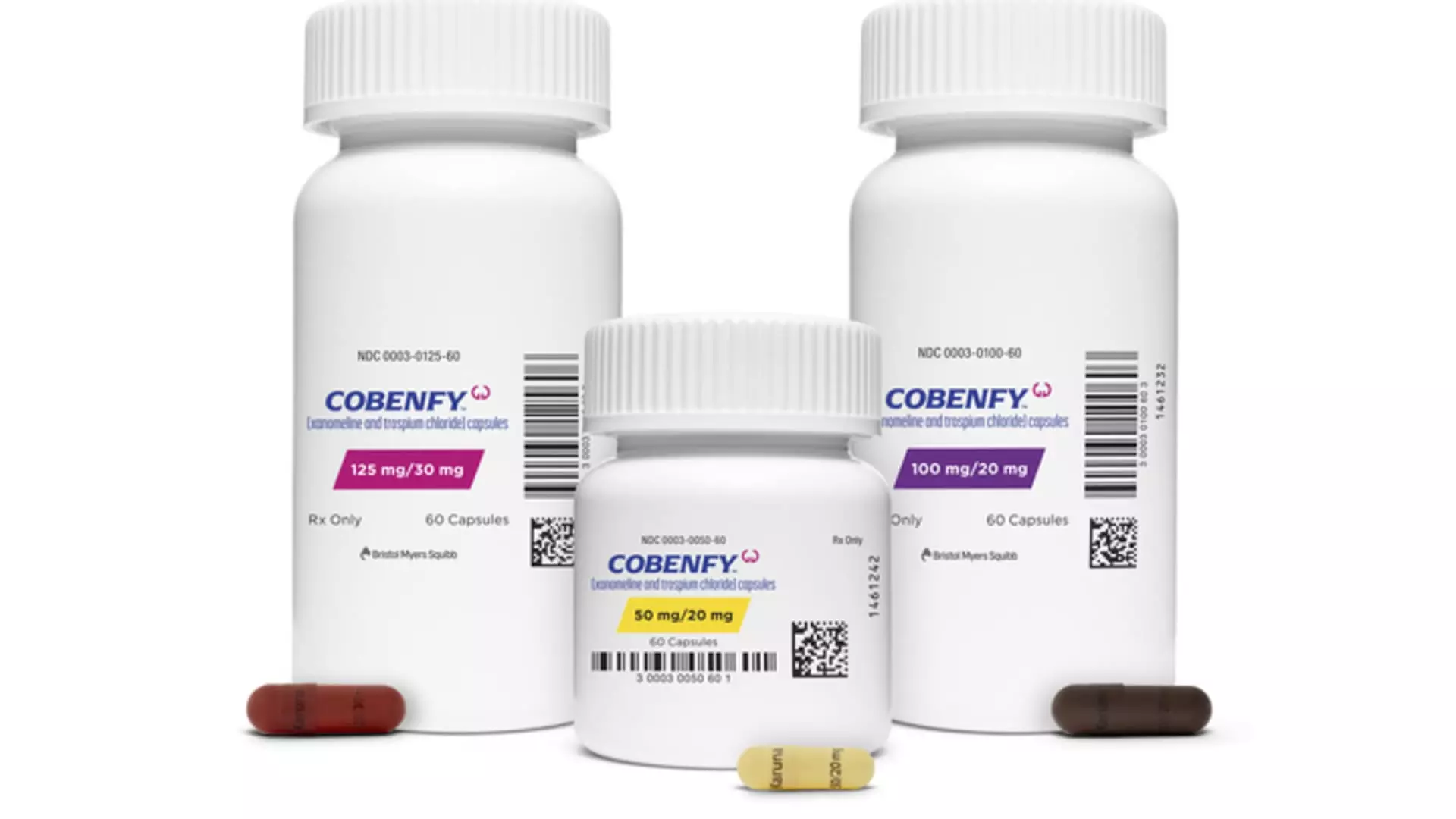On a momentous Thursday, the Food and Drug Administration (FDA) granted approval to Bristol Myers Squibb’s groundbreaking schizophrenia medication, Cobenfy. This approval marks a crucial milestone, being the first new class of treatment for schizophrenia in over 70 years. Schizophrenia is a complex mental disorder that disrupts an individual’s cognition, emotions, and social interactions. The condition can precipitate symptoms like paranoia, delusions, hallucinations, and unpredictable behavior, severely affecting a person’s daily life and functioning. For many, these challenges manifest during formative years, often between their late teens and early 30s, leading to significant turmoil in their personal and professional relationships.
Understanding the Significance of Cobenfy
Cobenfy is poised to provide much-needed relief for the nearly 3 million adults in the United States battling schizophrenia. Astonishingly, only 1.6 million individuals receive treatment for their condition, with a staggering 75% ceasing their medications within 18 months. This phenomenon reflects the significant hurdles many patients encounter in finding effective and tolerable treatments. Medical experts have expressed hope that Cobenfy will fill this crucial gap. Its introduction promises innovative approaches to managing schizophrenia, potentially leading to enhanced patient outcomes.
Additionally, the approval opens new avenues for financial growth for Bristol Myers Squibb, especially in light of looming patent expirations on several of their high-grossing medications. The company’s strategic $14 billion acquisition of Karuna Therapeutics, which facilitated the development of Cobenfy, demonstrates a forward-looking position as it strives to secure future revenue streams.
Bristol Myers Squibb has priced Cobenfy at $1,850 per month, translating to an annual cost of $22,500, pre-insurance rebates. Executives from the company argued that this pricing aligns with similar branded oral medications for schizophrenia. Moreover, they expressed confidence that most patients, particularly those under government insurance plans like Medicare and Medicaid, will face minimal out-of-pocket expenses. Approximately 80% of individuals living with schizophrenia are under such coverage, a factor that may mitigate the initial cost barrier for many.
Nevertheless, the actual accessibility of Cobenfy remains uncertain, particularly for the uninsured population. The drug will inevitably compete with existing schizophrenia medications that boast lower costs, particularly generic variants like Abilify. Generic medications can sometimes range as low as $16 for a month’s supply, creating a challenging landscape for Cobenfy’s entry.
What places Cobenfy in a class of its own is its unique mechanism of action. Unlike traditional antipsychotic medications, which primarily target dopamine receptors to manage symptoms, Cobenfy operates through an innovative dual-ligand approach. One component, xanomeline, activates muscarinic receptors in the brain, thereby modulating dopamine activity without the debilitating side effects typical of older antipsychotics. Furthermore, it incorporates trospium to alleviate gastrointestinal discomfort associated with xanomeline’s use.
This distinctive mechanism could potentially redefine treatment paradigms in addressing schizophrenia. As Adam Lenkowsky, Bristol Myers Squibb’s chief commercialization officer, pointed out, physicians are optimistic about the potential for Cobenfy to deliver significant efficacy without the adverse side effects frequently experienced with conventional medications.
Projections and Clinical Efficacy
The clinical evidence supporting Cobenfy’s efficacy originated from rigorous studies indicating a marked reduction in schizophrenia symptoms compared to a placebo. While the data is promising, analysts have projected a gradual market introduction for Cobenfy. It may take time before it significantly influences Bristol Myers Squibb’s financial metrics, particularly in the near future.
Nonetheless, experts like Andrew Miller express enthusiasm regarding Cobenfy’s long-term implications in transforming how schizophrenia is perceived and treated. With ongoing clinical research exploring other potential applications for Cobenfy—such as treating psychosis in Alzheimer’s disease patients—there is considerable optimism surrounding its future capabilities beyond schizophrenia management.
The approval of Cobenfy heralds a promising new chapter in the medical management of schizophrenia. This drug represents more than just a new treatment; it embodies hope for many who have suffered from the debilitating impacts of this mental health disorder. While challenges in accessibility and affordability persist, the innovation behind Cobenfy could reshape patient outcomes and invigorate discussions around schizophrenia treatment. As the medical community and patients await its launch, there remains hope that Cobenfy will not only fill a critical treatment gap but also usher in a new era of compassionate, effective mental health care.

